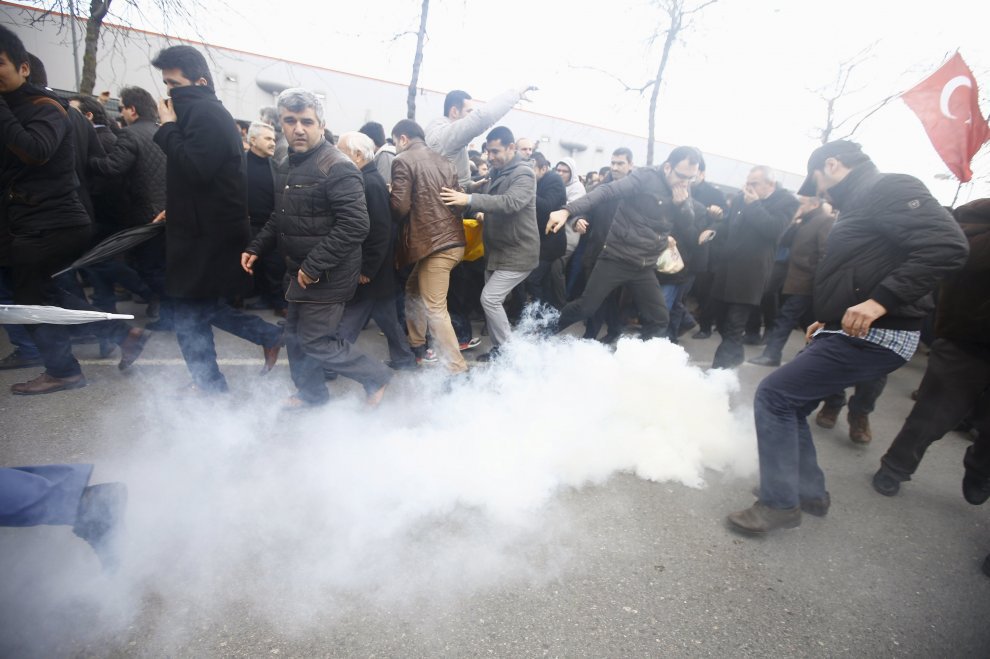Analysis
Turkish president gives himself new title: Editor-in-chief
Sunday’s edition of Turkey’s largest newspaper took a pro-government turn after Turkish President Recep Tayyip Erdogan seized the publication and installed new management.

Turkish President Recep Tayyip Erdogan elevated his despotism against press freedom on Friday night with tear gas and water cannons, leaving dozens injured and the main opposition newspaper under state control. Its Sunday edition bore the image of a smiling Erdogan and several pro-government articles.
On Friday, police raided the headquarters of the Zaman newspaper following a court decision to seize the publishing group that owns it. About 500 people, including journalists and free press supporters, rallied in front of the paper’s offices in Istanbul to protest the raid. Riot police charged the demonstrators, breaking the locks on the office doors and kicking the journalists. Then they set up a cordon to prevent editors from entering, while escorting inside the new, court-appointed managers.
The takeover of Zaman was part of Erdogan’s crusade against Fethullah Gulen, a Turkish former imam and former ally of the president who now lives in exile in Pennsylvania. Erdogan considers his “Gulen movement” a terrorist organization and has adopted exceptional measures to silence any media owned by Gulen — including Zaman, the largest-circulation paper in Turkey, with around 650,000 copies sold daily.
On Saturday, the managing editor was fired, and all online content was removed. The journalists, however, had time to share photos of the repression and issued a final warning in the paper’s last independent edition: “We are going through the darkest days for the freedom of the press, which is a cornerstone of democracy and the rule of law. Journalists are more often in court than in newsrooms. Many of those repeatedly arrested and prosecuted are still in prison.” The European Union and the White House expressed “grave concern.”
This is by no means Erdogan’s first or most alarming abuse of power against the press. In 2014, Can Dundar, editor-in-chief of the center-left Cumhuriyet newspaper, and the paper’s Ankara edition editor were arrested on charges of “espionage and treason.” Their only offense was the publication of a powerful investigation, including photographs, that documented the role of Turkish intelligence in supplying arms to Islamist groups in Syria used to attack Kurds. The Turkish authorities were escorting weapons to the Syrian border along a “highway of jihad,” the paper reported. Erdogan said Dundar deserved life in prison. But last month Dundar and his colleague were released after the Constitutional Court ruled their imprisonment was illegal.
Turkey has among the highest number of journalists in prison, according to Amnesty International. After the general elections in June, government pressure on the media became unprecedented. Reports of torture and abuse in prisons increased. Last year, the Justice Minister authorized 105 prosecutions for insulting the president. In November, Tahir Elci, a human rights lawyer and director of the Diyarbakir Bar, was gunned down after a press conference.
“Criminal Courts of Peace — with jurisdiction over the conduct of criminal investigations, such as pre-charge detention and pre-trial detention decisions, seizure of property and appeals against these decisions — came under increasing government control,” Amnesty wrote.
Originally published at http://ilmanifesto.info/erdogan-bastona-la-stampa/ on 2016-03-06
